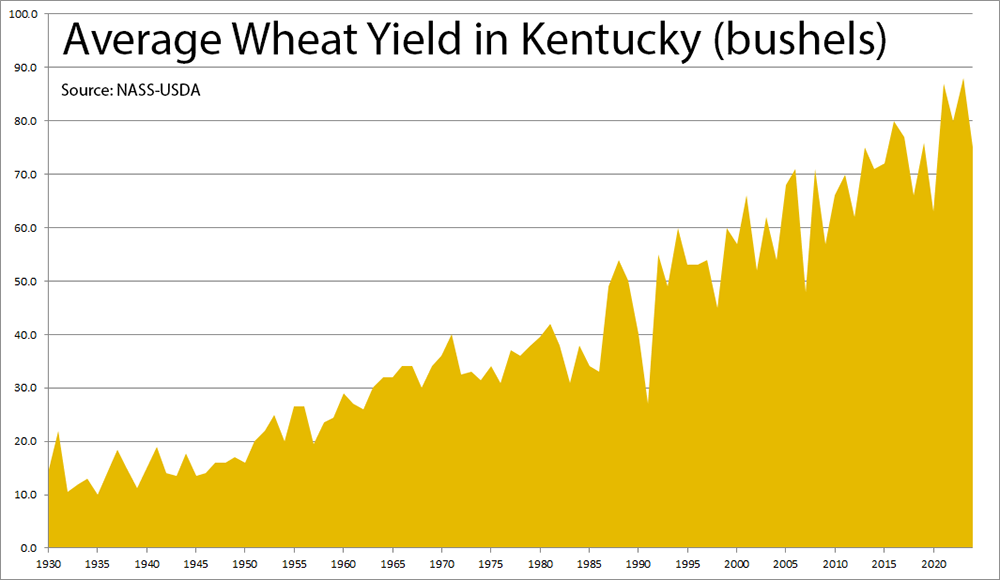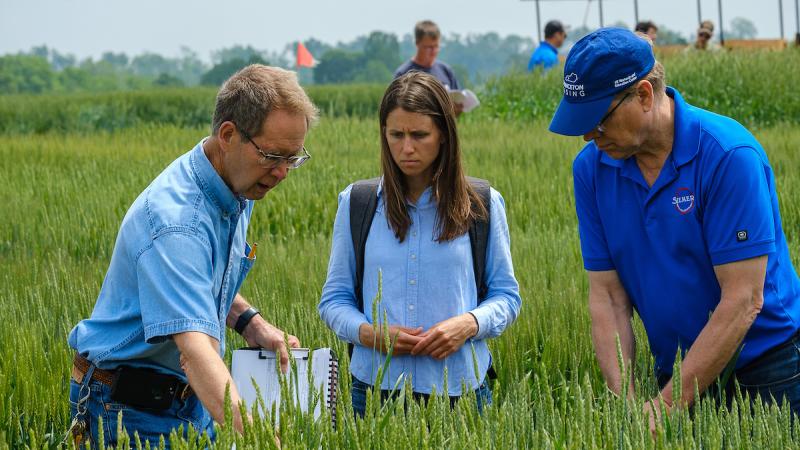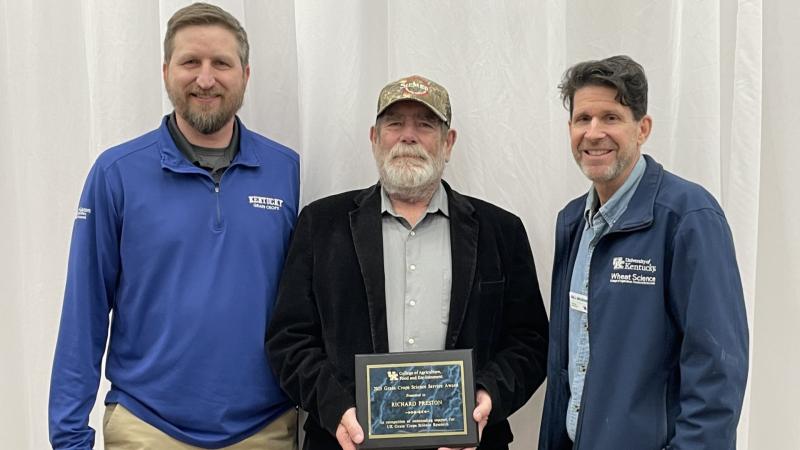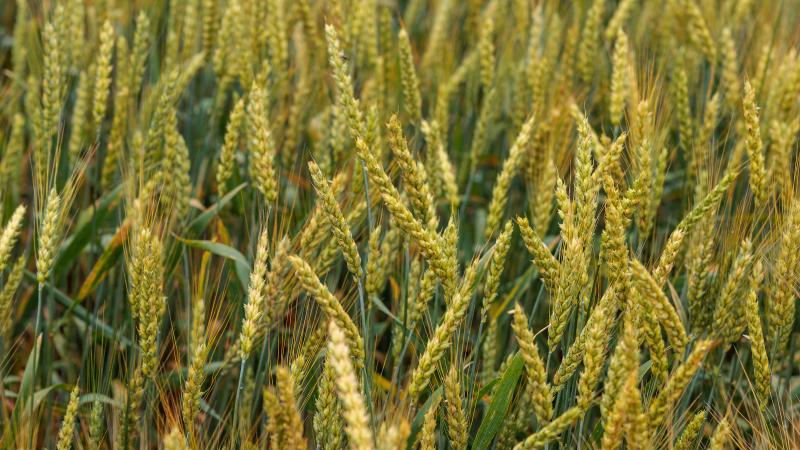Home
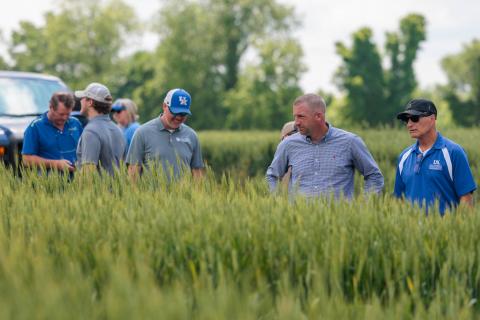
Latest Wheat Production Numbers
NASS-USDA 5/12/2025 Crop Production Report
Winter wheat production in Kentucky is forecast at 29.465 million bushels, up 215 thousand bushels from 2024. It is estimated that farmers will harvest 355 thousand acres, down 35 thousand acres from 2024. Average yield is forecast at 83.0 bushels per acre, up 8 bushels from 2024.
Winter wheat production in the United States is forecast at 1.38 billion bushels, up 2 percent from 2024. As of May 1, the United States yield is forecast at 53.7 bushels per acre, up 2.0 bushels from last year’s average yield of 51.7 bushels per acre. Area expected to be harvested for grain or seed totals 25.7 million acres, down 1 percent from last year.
Useful Resources
The Growth of Kentucky's Wheat Industry and Wheat Science Group
Once no-till research had been established on corn and soybeans at the University of Kentucky in the 1960s, agronomists Charles Tutt and James Herbek at the Princeton Research and Education Center turned their attention to planting double-crop soybeans behind wheat in the 1970s, which led to intensive and no-till wheat production led by Herbek and Lloyd Murdock in the 1980s.
David Van Sanford, professor and wheat breeder in the University of Kentucky Department of Plant and Soil Sciences and co-chair of the Wheat Science Group, joined the Lexington Plant and Soil Science staff in 1981 to develop soft red winter wheat varieties for the region. He said several factors came together in the 1980s that set Kentucky on a path to successful, profitable wheat production.
In 1985, the late Billy Joe Miles, a visionary agribusinessman and owner of Miles Opti-Crop, took a group of growers to England to observe and learn about wheat production there. This was followed by the arrival of the first of a set of British and Irish wheat consultants (Phil Needham, Chris Boley, Ronan Cummins). Suddenly, it seemed there was a critical mass of growers, researchers, and consultants who wanted to put Kentucky on the map as a premier location for the production of high-quality soft red winter wheat.
Thanks to encouragement and support from passionate farm leaders (the late Don Halcomb, Hoppy Henton, Wayne Hunt and Mike Ellis, to name a few), the multi-disciplinary Wheat Science Group was formed in the early 1990s. Soils, genetics, pests and plant growth experts united to significantly raise the average wheat yields and no-till wheat acres in the Commonwealth.
The Kentucky Small Grain Growers Association was also formed in the early 90s, providing financial support and guidance on research.
The real game-changer was that Siemer Milling Company opened a Kentucky mill in Hopkinsville in 1995 in response to improved wheat production and quality. Within a few years, wheat flour buyer Continental Mills built a processing plant next door; the flour milled at Siemer travels by pipe to Continental for use in easy-to-make baking mixes. It is also sold and shipped to bakeries in the region and surrounding states.
It was also about this time that the Wheat Science Group, coordinated by Dottie Call at UKREC, began hosting the Wheat Field Day. Van Sanford said they initially invited farmers, production consultants, and wheat buyers to farms in the southern-tier counties, where wheat production was more prominent.
The Wheat Field Day eventually found its permanent home at UKREC. A Winter Wheat Meeting, typically held in Hopkinsville, was added to the education line-up. The Field Day and Meeting are the premier events to share the latest wheat research and management information for growers and processors. They draw a large crowd from several states.
Wheat yields in Kentucky have continued to grow thanks to this cooperative effort.
